Theater Review: Rent redefines love
Not only does the show demand to be seen, it demands to be experienced.
[The show] almost seems to scream, ‘Yes, we went there.’
Rent is a love letter to places that feel like home, to songs that you didn’t know you knew, and to friends who feel more like family. Billed “for mature audiences,” the play is self-aware of its every controversial moment – and almost seems to scream, “Yes, we went there.” Interactions between a drag queen and the man he loves, a powerful performance by a group of exotic dancers, and a heartrending romance between two vastly different women dare the audience to react. While any description of the play would read, “Rent follows a group of young artists as they struggle through the AIDS epidemic, the pain of love and loss, and a world unforgiving of those who are different,” Fossil Ridge High School’s production goes further. Within it, the audience is likely to find all the hope they’ll ever need, along with some they didn’t know existed.
Set against New York City’s East Village in the early 1990s, the show juxtaposes despair against ambition, money against friendship, hardship against love. Many of the characters are HIV-positive, and through the first act, the audience is rarely able to ignore the impending sense that they are coming to care about people who they might lose. This parallels the relationships of the actors to one another – even as they fall in love, they attempt to hold back their feelings so as not to get hurt. Ultimately, though, everyone must acknowledge the fact that life only holds meaning when it’s lived loving one another.
The show opens with Mark Cohen, played by senior Austin Hand, filming his roommate with a handheld camera. Roger Davis, played by sophomore Cade Frevert, is an aspiring guitarist and vocalist – who also happens to be HIV-positive. Cohen has just been dumped by Maureen Johnson, senior Megan Bean, a whirlwind of a performer who fell in love instead with lawyer Joanne Jefferson, senior Morgan Schramm. Though the initial songs were slightly confusing, as the audience tried to piece together who was who to whom, the on-stage chemistry between characters was evident.
We learn that Mark and Roger live in an apartment block containing an illegal stove, spotty electricity, and no heat, and that, outside, a tent city of homeless New York City residents stretches out. Benjamin Coffin, senior Parker Bennett, owns both the apartments and the empty lot. Once a friend of Mark and Roger, he married rich and promptly bought the block he once struggled to pay rent for. When he comes around to collect from his former friends, it’s Christmas time, and they have no money to give.
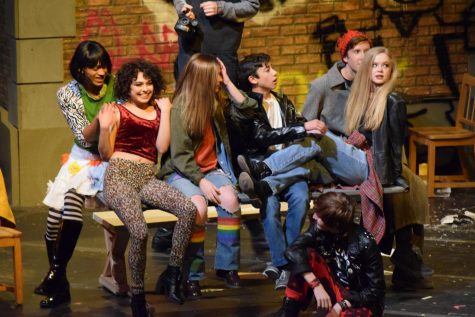
Each of the characters on the streets embodies a slightly different attitude, but all are fed up with being overlooked.
The animosity between the three, coupled with a frustrated homeless population with nowhere to go, fuels the first true rock ballad of the show. “Rent” pulls out all stops, as psychedelic lights dance on stage and the entire ensemble dances around the stage. The pain and desperation of those on the streets reverberates in, “We’re not gonna pay last year’s rent, this year’s rent, next year’s rent,” and the scene far extends rebelliousness. One can feel the anger glowing in the coals of illegal fires and barely-lit candles, and the scene shines.
From the anger, though, has to come hope. Tom Collins, played by senior Lucas Feuer, is robbed on the streets, and Angel Schunard, played by sophomore Jay Hirning, comes across him. Angel helps him up, and, with “You Okay, Honey?” launches the two on a combination sensually-tense and platonically-valid love story. Angel, a drag queen, is perhaps the most kind and compassionate character in the show. She serves as the friend everyone needs, and Hirning plays her beautifully. A young actor, he perfectly channels the fear Angel swallows every time she performs, letting her voice crack at just the right moments but never letting her caring facade do the same.
Meanwhile, Roger sits alone in the apartment, too scared of the disease consuming him to face the world outside. Mimi Marquez, played by senior Maria Cuddemi, wanders in; in a stunning performance of “Light My Candle”, she conveys a sensual and desperate need for someone to love her. Mimi and Roger couldn’t be further from a prom queen and king. Instead, they spectacularly embody the dark underbelly of a relationship, and the need for one another that threads through anyway. Their voices were in sync, and their hearts fell into sync too.
Mark, Roger, and Benny continue to clash, as accusations are hurled. Mark and Roger acknowledge that, “we’re broke, and you broke your word,” in “You’ll See,” and the trio’s performance screams of betrayal between those who once meant the world. Benny plans to demolish the temporary settlement on his lot to build a Cyber Studio, where he’d give Mark and Roger a legitimate place to record music. They refuse to turn their backs on their friends, instead helping Maureen plan a protest in support of the homeless. The moral lesson learned is clear: they do everything together, or they don’t do anything at all.
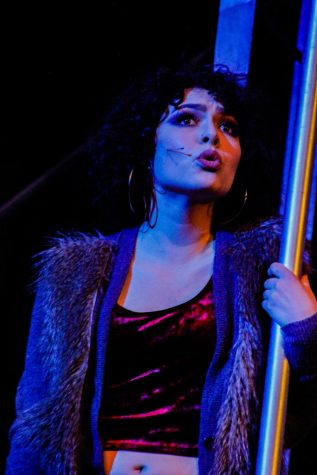
Maria Cuddemi’s character, Mimi, struggles to find her place in a relationship with a man who won’t acknowledge his own baggage.
Joanne gets her first breakout moment in “Tango: Maureen”, as she and Mark attempt to comprehend the woman they’ve both loved. Their voices complement one another perfectly, and they express the kind of love that one can’t help believing in, even as it fails over and over again. Simultaneously, Mimi executes a powerful performance of “Out Tonight” that calls every woman in the room to sit up a little straighter and hold her head with a little more pride. The ladies who dance behind her exude a sense of knowing exactly the power they hold and what they can do with it, and the confidence isn’t just a bold feminist move, but a bold statement about loving oneself.
The play progresses, and the characters all attempt to balance regret with happiness. Their struggle to do so speaks equally well to teenagers and adults, because the dichotomy is timeless – everyone makes mistakes, and everyone must move past them. In several scenes, songs performed by artists on the street dare the audience to question their complacency. Those who are searching for a place called home don’t pull any punches as they display everything that is snatched away from those who are homeless, from dignity to safety to peace. “Santa Fe” calls out the material excess in a culture where Christmas has become about never-ending presents, and the audience is forced to consider what “Christmas Bells” really mean when you barely have a place to lay your head.
The vulnerable are protected only by one another, and Fossil’s young thespians couldn’t have portrayed that fact more truthfully than they did.
The first act concludes in the Life Cafe, where Mimi and Roger’s rendition of “I Should Tell You” lets the audience fall in love right along with them. Absolutely critical and delightfully understated in the performance is the moonlight that drenches the two of them, which pairs with the simple dance that draws them away from and back toward one another. Then, “La Vie Bohème” masterfully blends complicated choreography with a song that speaks for the misfits, the outcasts, and those who’ve ever felt alone. As the entire cast sings, “the Christmas tree goes up in flames,” the audience is hit by the sense of the ticking clock winding down on each young life. Even in the hopeful times, things remain risky and dangerous, which parallels the reality faced by the prostitutes, the homeless, and the artists of the world. The vulnerable are protected only by one another, and Fossil’s young thespians couldn’t have portrayed that fact more truthfully than they did.
Throughout the show, Mark pursues a youthful dream of creating his own film. Always behind a camera, he narrates the obvious on-stage – and, intentionally, doesn’t point out the truths that are harder to bear. Throughout the intermission, the audience remains sobered by the thought that everyone can’t possibly make it through the year alive. When the lights go back down and the whole cast begins to sing “Seasons of Love”, the effect is both haunting and melodic, pained and expectant. Though the song is perhaps the best known by the audience, the simple, candlelit performance gives it context and emotion that can’t be fully realized until it is mourned aloud.
The first character to die is the one everyone in the theater needs to believe in, and the chills in the room are physically painful to bear. However, Tom’s performance of “I’ll Cover You” is a raw, touching testament to a heart that still beats after it has been broken, and it sets the rest of the show up for everyone to get their second chance. The second act essentially serves as an exploration of what it’s like to become someone new, even after starting to believe it’s too late, and the hopefulness in such a concept drives both the play and the human condition.
The show is filled with beautiful, powerful, and surprising moments. In “Take Me or Leave Me”, the audience sees Bean and Schramm at their very best, as they strive to embody two vastly different types of women. Though one lives with her feet on the moon and the other with her thoughts rooted on earth, their desperation to find some shred of love drives the incredibly moving call-and-response. Junior Maggie Bishop and freshman Jackie Anderson’s solos in “Seasons of Love” sound truly professional, their voices paralleling one another even as they reach unbelievable heights. Frevert, for his part, reaches into the depths of a 1990s Billie Joe Armstrong-esque sound to pull off several astonishing rock ballads. His grittiness as a performer makes his acting undeniably convincing, and Fossil can rest assured that we’ll be seeing him in coming years.
Rent finds its purpose as it goes; its actors find their voices as they begin to use them. Not only does the show dare to reinvent love in a wholly more open-minded way, it resets the parameters for the definition of home. The audience comes to realize that the concept is rooted in the place where one makes their memories. Rent reminds its audience of the songs they once loved and encourages them to take a listen once again, somehow knowing that they’ll find peace within them. Finally, the show redefines family to include anyone who gives their heart freely, anyone who believes in another, and those who make one feel entirely loved.
Rent is a love letter. To discover for what, you’ll have to see it for yourself.
Your donation will support the student journalists of Fossil Ridge High School. Your contribution will allow us to purchase equipment and cover our annual website hosting costs.

Despite all the warnings given to her, senior Isabella Mahal filled her schedule with AP classes and a single TA period. Many of these classes were only open to seniors and fascinate her, such as AP Literature and AP World History, so not having an off period doesn’t bother her. It isn’t just her...

Co-Editor in Chief and senior Anna Henning is ecstatic to be entering her fourth year of journalism. Henning has grown up loving writing, and has taken every writing class she can. She really enjoyed taking Creative Writing freshman year, but Journalism II has always been her favorite class. Henning...



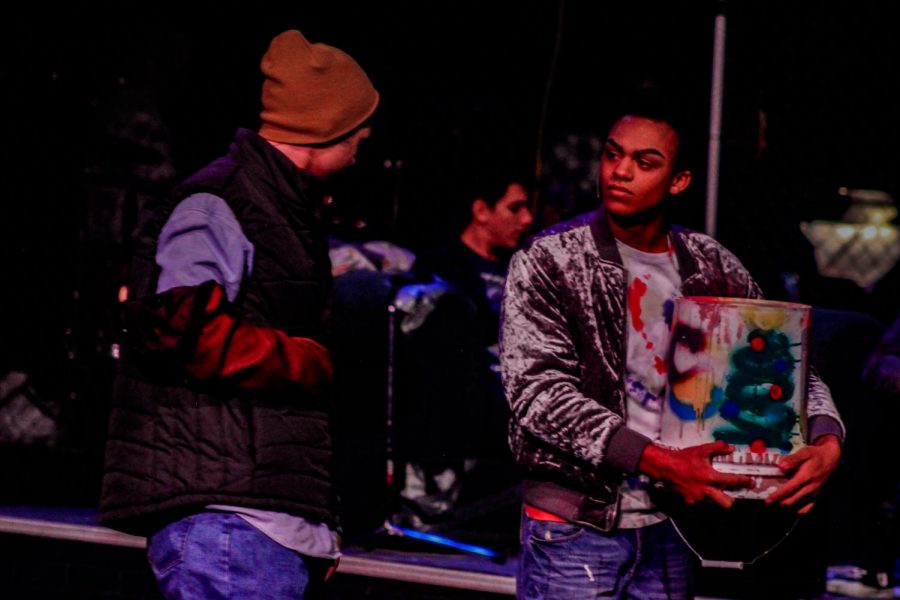
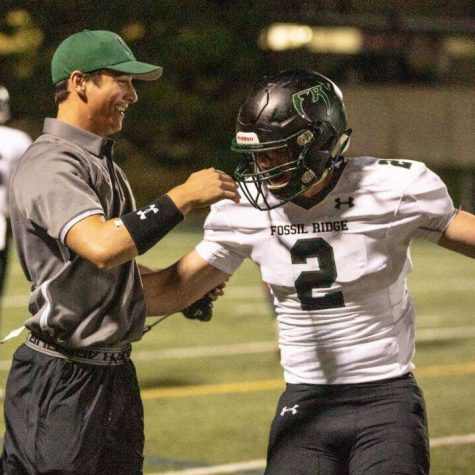


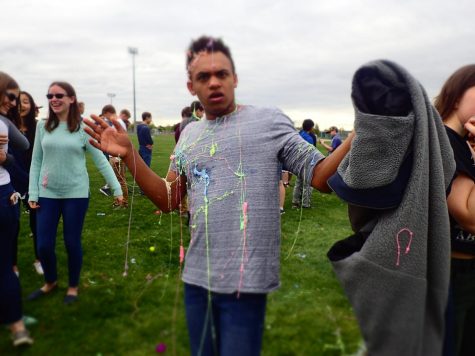
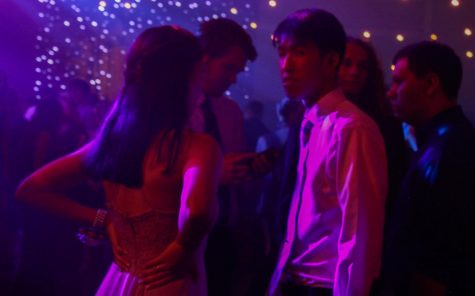
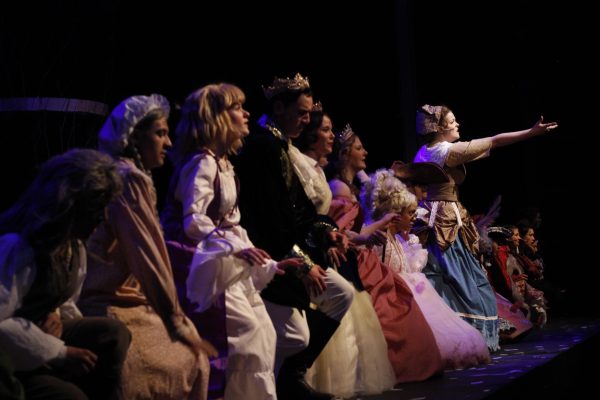
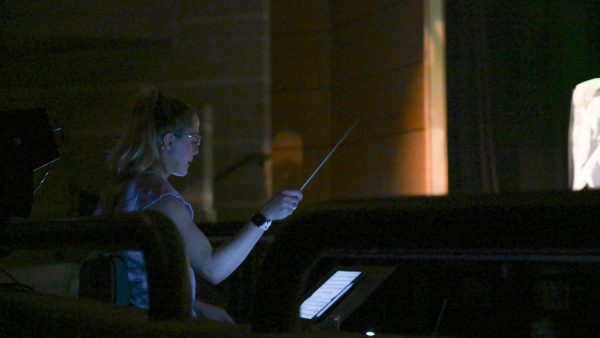
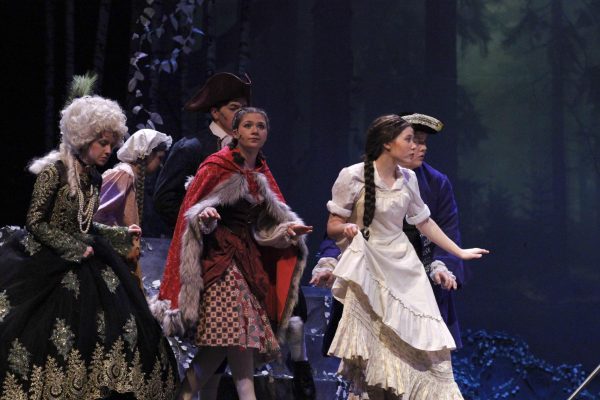
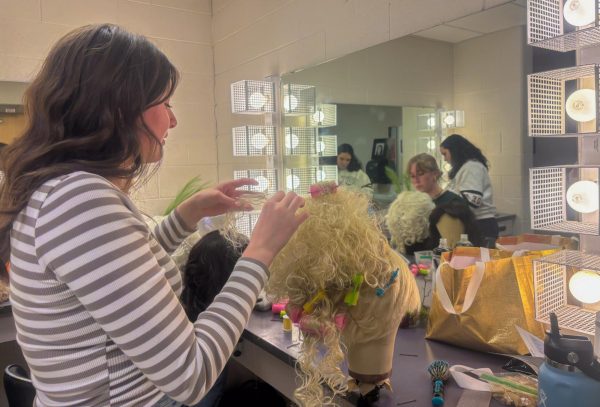
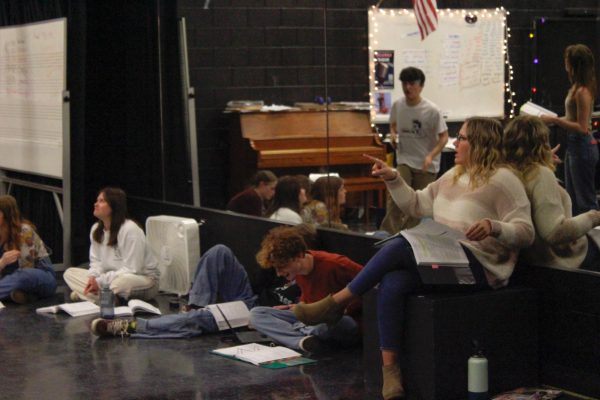


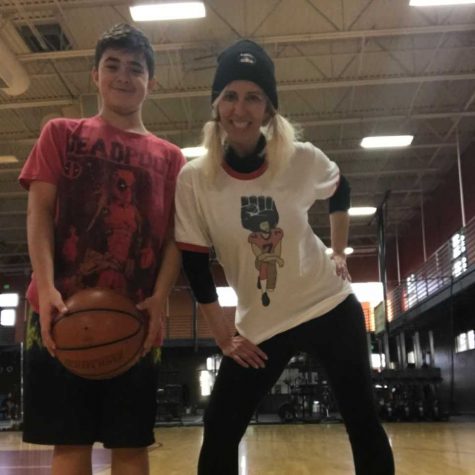


Serena Bettis • Nov 15, 2018 at 11:20 pm
Oh, also wonderful photography done in the PAC Liam and Anna!
Serena Bettis • Nov 15, 2018 at 11:20 pm
Bella, I forgot how much I love reading your writing, it’s fantastic and I miss being the first person to read it (I also miss reminding you to not use contractions! (that’s my reminder right there)). I really love all the detail you include AND the tagline at the very top of the article!! All this use of SNO features is making me so happy!
Plus, major props for including information about a correction!